According to the Climate Change Authority’s (CCA) annual progress report, Australia’s CO2 emissions fell by 3 million tonnes between 2023 and 2024, accounting for one-fifth of the 15 million tonnes required annually to meet the federal government’s target of 43% reduction in emissions from 2005 by 2030.
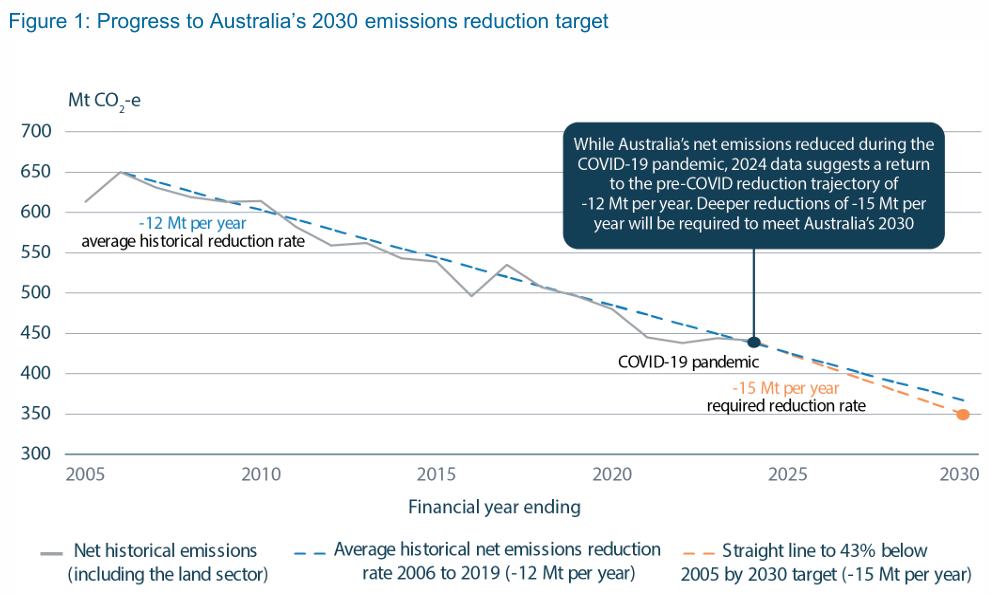
The CCA stated that further effort is required to speed up the adoption of renewable energy sources.
Meanwhile, closing cheap, reliable baseload power has seen Australian energy costs soar. This has contributed to the structural decline in Australia’s manufacturing sector, effectively transferring Australia’s manufacturing capacity and emissions to China.
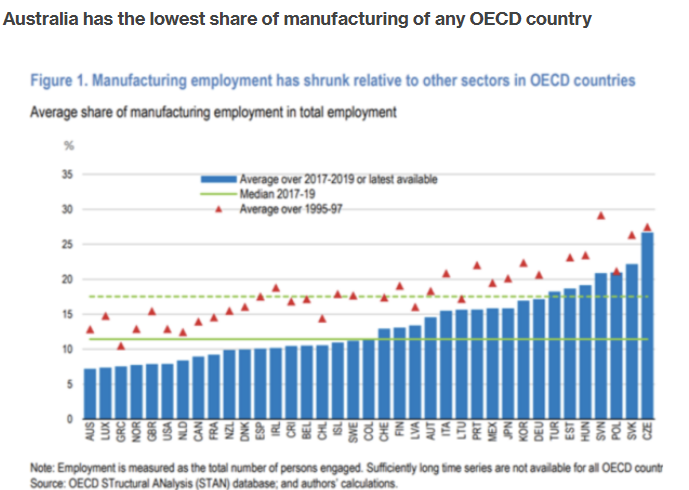
New analysis from the International Energy Agency (IEA) forecasts that global consumption of coal will increase by 1% in 2024, to 8.77 billion tonnes.
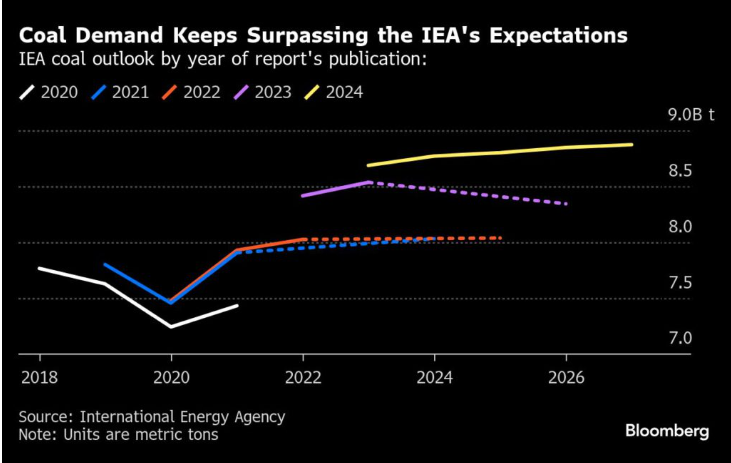
The Paris-based agency blamed power plants for the growing use of coal over the last year. This is being driven by China, which consumes 30% more coal than the rest of the world put together.
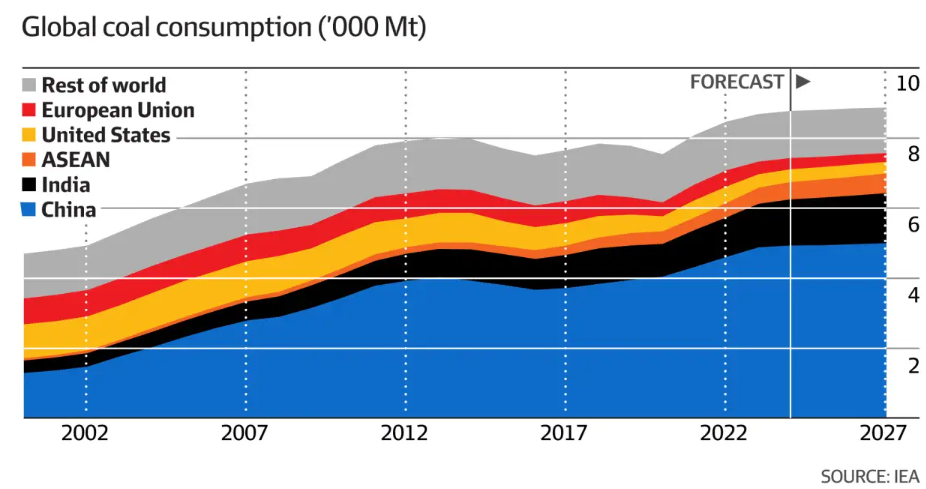
Coal demand in China is forecast to grow by 1% in 2024 to reach a record high of 4.9 billion tonnes.
Indian coal demand is forecast to grow by more than 5% to 1.3 billion tonnes, a level previously reached only by China.
The C2C Journal recently reported that “China’s government granted construction permits for the equivalent of two large new coal-burning power plants – every week”.
“That was some 106,000 megawatts of new capacity approved over the course of the year, four times as much as the year before”.
“China now has six times more coal plants under construction than the rest of the world combined”.
Data from the World Bank show that China’s greenhouse gas emissions per unit of GDP – what is known as “emissions intensity” – are two-and-a-half times as high as in North America”, C2C Journal reported.
The below charts tell the tale. The number of coal-fired power plants in China dwarfs all other countries.
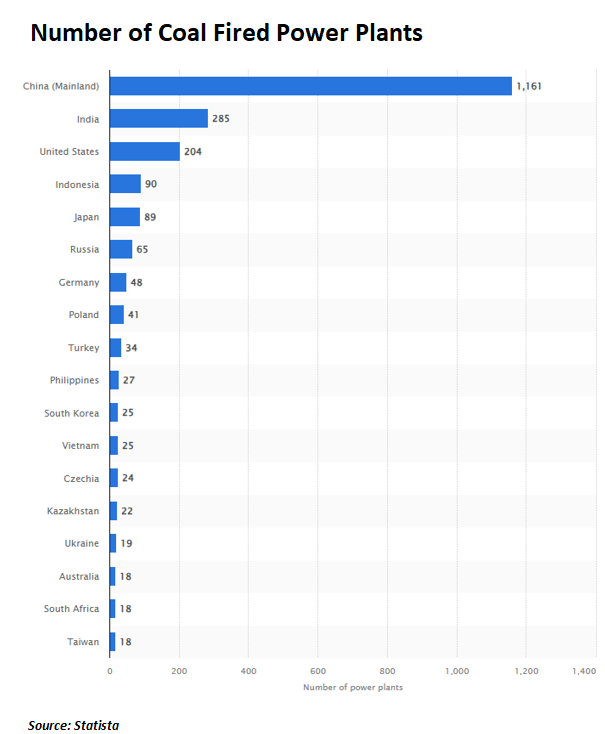
According to Statista, China has around 65 times as many coal-fired power plants as Australia. The number of coal-fired plants in China also continues to grow.
China is also the largest producer of coal in the world.
China’s annual carbon emissions comprehensively dwarf all other nations and continue to rise at an astounding rate. By contrast, emissions across developed nations are either flatlining or falling.
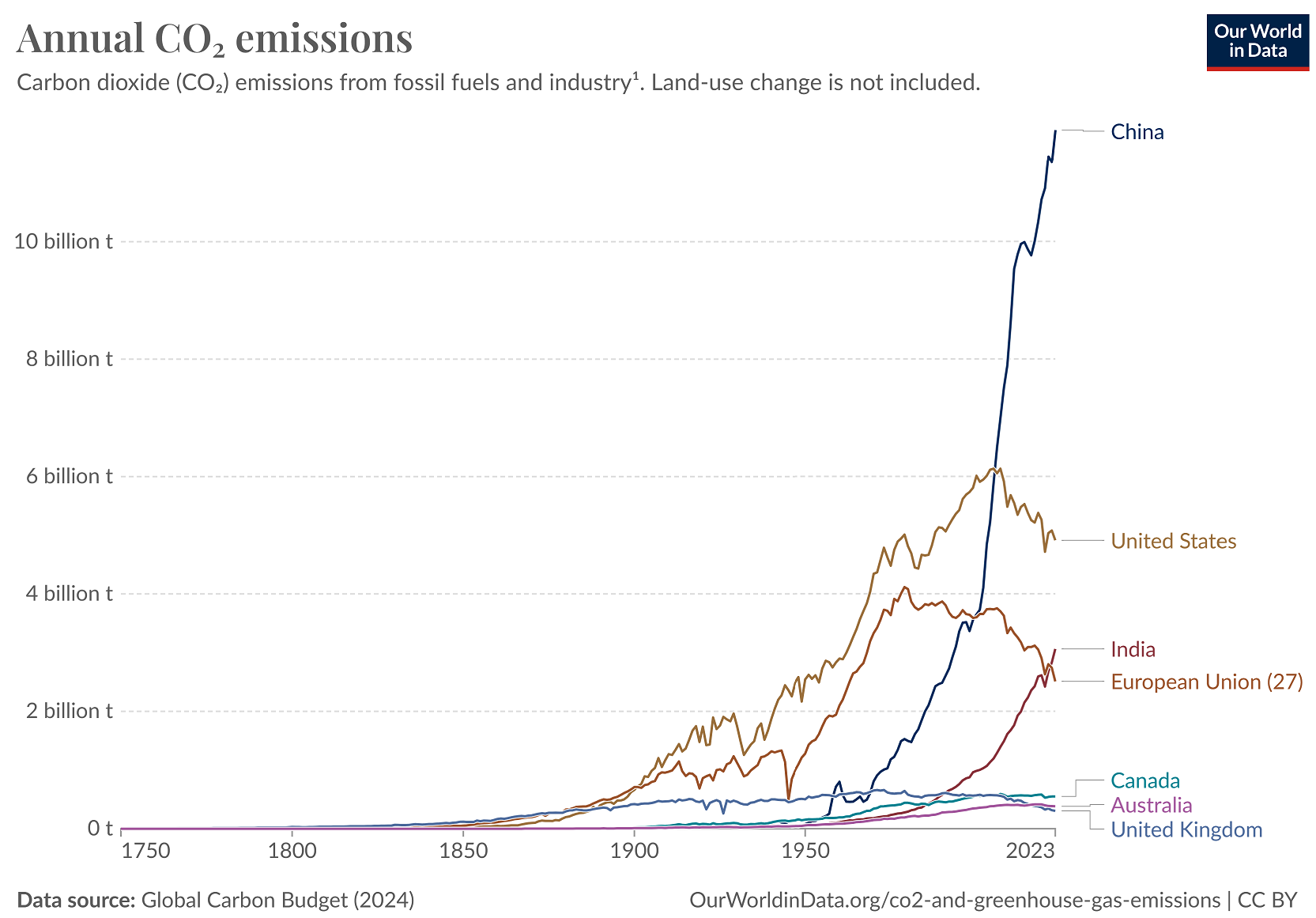
China has also accounted for nearly two-thirds of the world’s carbon emissions since 2000.
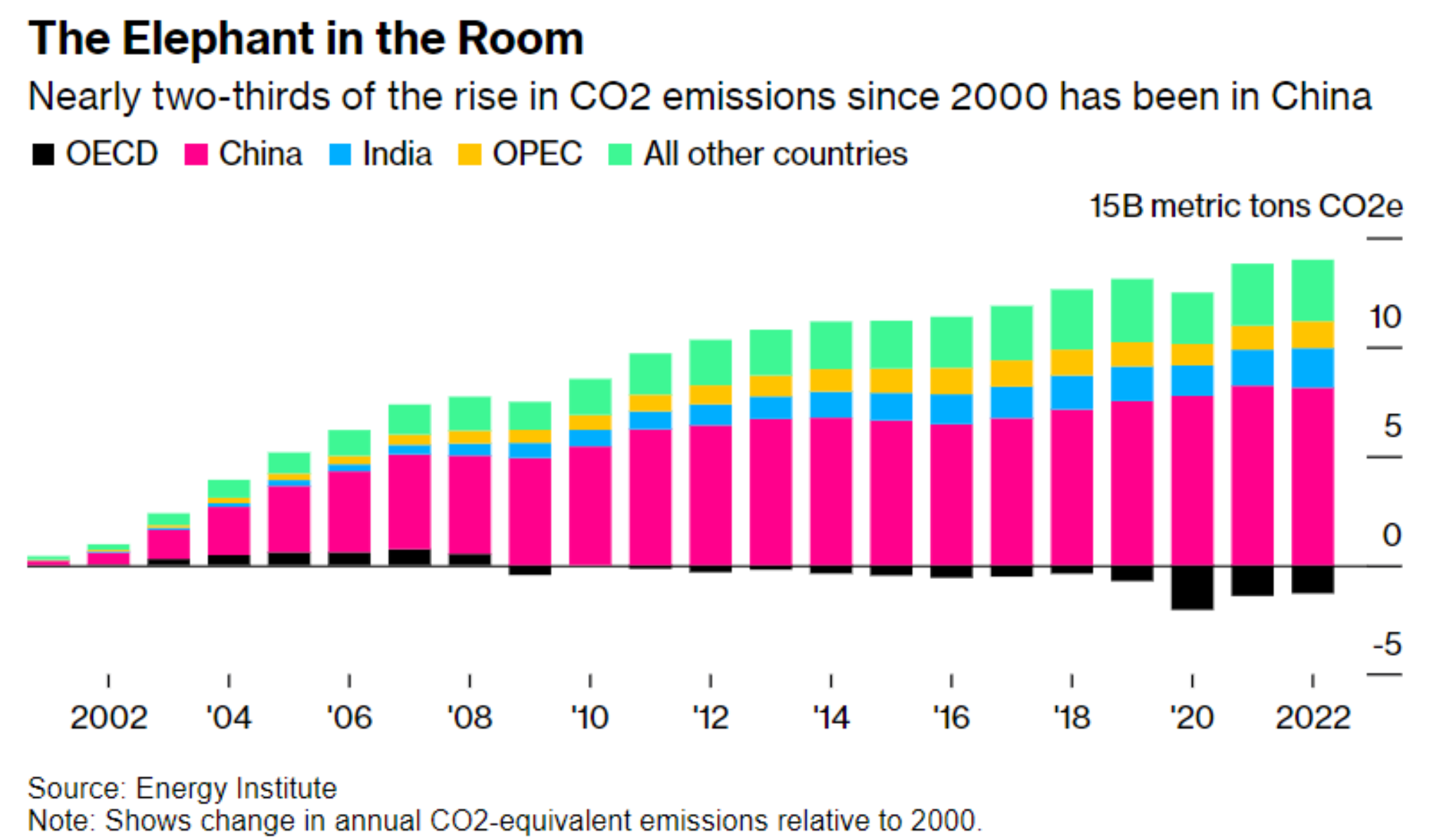
Clearly, the fantasy of ‘net zero’ emissions is dilusional without China’s participation.
It would also be better for the world’s climate if developed countries such as Australia retained their industrial capacity and burned their hydrocarbon energy at home rather than exporting both to China.

